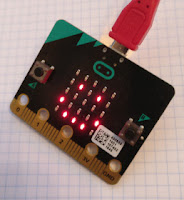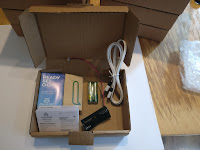Quick2Wire status update - a new lease of life?

Quick2Wire Logo I've fielded several questions about Quick2Wire in the last few days, so it's probably time to explain what happened, where things are now, and what the future holds. Some of you won't have heard of Quick2Wire. It was a start-up that designed, manufactured and sold add-on boards for the Raspberry Pi. I founded it in 2012, along with a group of other designers and developers, and it did reasonably well for a while. What went wrong? Most team members had full time jobs, so they could only work on the project in their spare time. I ended up doing all the marketing, kitting, packing, posting and accounts. One consequence was that I didn't do enough marketing after we launched, and things became worse when our PCB designer became seriously ill. We needed office space for the stock and kitting area, and when sales fell off we could no longer cover our costs. Quick2Wire stopped trading in the summer of 2013, and was finally dissolved in Mar...


